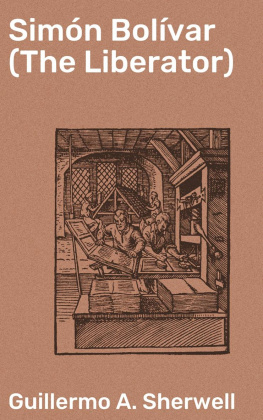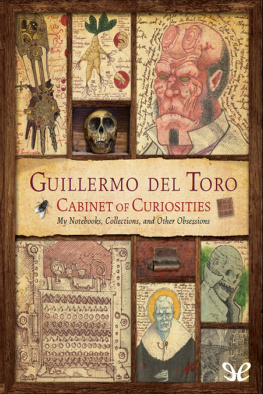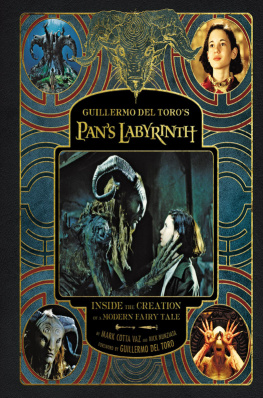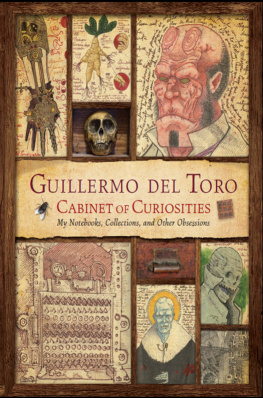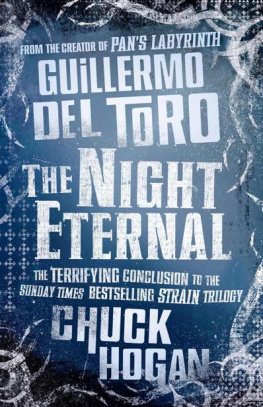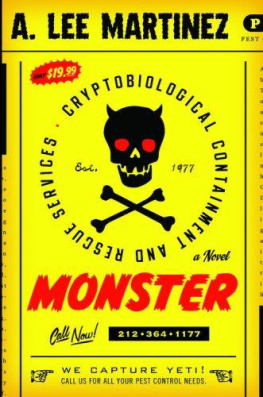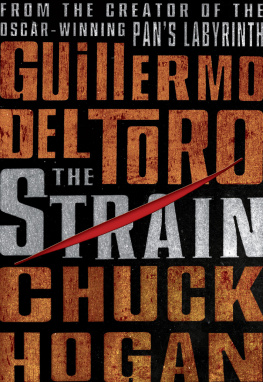Guillermo Martínez - The book of murder
Here you can read online Guillermo Martínez - The book of murder full text of the book (entire story) in english for free. Download pdf and epub, get meaning, cover and reviews about this ebook. year: 2008, publisher: Abacus, genre: Prose. Description of the work, (preface) as well as reviews are available. Best literature library LitArk.com created for fans of good reading and offers a wide selection of genres:
Romance novel
Science fiction
Adventure
Detective
Science
History
Home and family
Prose
Art
Politics
Computer
Non-fiction
Religion
Business
Children
Humor
Choose a favorite category and find really read worthwhile books. Enjoy immersion in the world of imagination, feel the emotions of the characters or learn something new for yourself, make an fascinating discovery.

- Book:The book of murder
- Author:
- Publisher:Abacus
- Genre:
- Year:2008
- Rating:3 / 5
- Favourites:Add to favourites
- Your mark:
- 60
- 1
- 2
- 3
- 4
- 5
The book of murder: summary, description and annotation
We offer to read an annotation, description, summary or preface (depends on what the author of the book "The book of murder" wrote himself). If you haven't found the necessary information about the book — write in the comments, we will try to find it.
The book of murder — read online for free the complete book (whole text) full work
Below is the text of the book, divided by pages. System saving the place of the last page read, allows you to conveniently read the book "The book of murder" online for free, without having to search again every time where you left off. Put a bookmark, and you can go to the page where you finished reading at any time.
Font size:
Interval:
Bookmark:
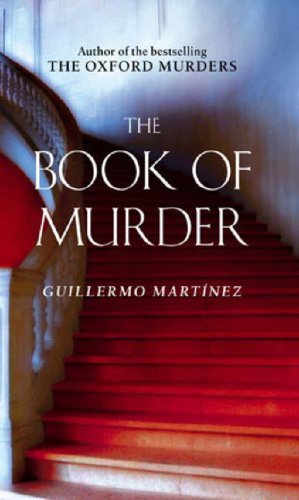 |
Guillermo Martinez
The Book of Murder
2008
The narrator is an up-and-coming young writer who has little in common with Klostera literary giant whose disturbing crime novels dominate the bestseller lists. However, they have both, at one time, employed the secretarial services of the alluring Luciana B. Out of the past, Luciana makes a desperate plea to the young writer. She thinks that Kloster is slowly killing off everyone close to hercan he help before her grandmother and younger sister are murdered?
While the narrator suspects her misfortunes have driven her mad, Kloster has a powerful motive; and eerie parallels surface between the murders in Klosters books and the real-life deaths surrounding Luciana. As the body count multiplies, the question arises: Can words really kill? Fans of both Alfred Hitchcock and Carlos Ruiz Zafn will be thrilled with Martnezs literary murder mystery.
T he telephone rang one Sunday morning, tearing me from the sleep of the dead. When I answered, a voice simply said Luciana, in a weak, anxious whisper, as if it were all Id need to remember her. Disconcerted, I echoed the name, and she added her surname, which roused a distant memory. Then, in an anguished tone, she reminded me who she was: Luciana B, the girl who took dictation. Of course I remembered. Had it really been ten years? Yes, almost ten, she confirmed. She was glad I still lived in the same flat. But she didnt sound at all glad. She paused. Could she see me? She had to see me, she corrected herself, the desperation in her voice removing any possible delusions on my part.
Yes, of course, I said, slightly alarmed. When?
Whenever you can, as soon as possible. I looked round doubtfully at my untidy flat, testament to the indolent forces of entropy, and glanced at the clock on the bedside table. If its a matter of life and death, I said, what about this afternoon, here, say at four?
There was a hoarse sound at the other end of the line and a faltering breath, as if she were trying to hold back a sob. Im sorry, she mumbled, embarrassed. Yes, it is a matter of life and death. You really dont know, do you? Nobody knows. Nobody realises. I thought she was about to cry again. There was a silence, during which she struggled to regain her composure. Even more quietly, as if she could hardly bring herself to say the name, she whispered: Its about Kloster. And before I could ask any questions, as if afraid I might change my mind, she said: Ill be there at four.
Ten years earlier, I had broken my right wrist in a stupid accident and had gone about with my hand, to the tips of my fingers, held in the rigid grip of a plaster cast. At the time, I was due to deliver my second novel to the publisher but all I had was a draft in my impossible handwritingtwo thick spiral notebooks riddled with deletions, arrows and corrections that no one but me could decipher. After thinking it over for a few moments, my editor, Campari, came up with the solution: he knew that Kloster had for some time now been using a typista girl, very young and apparently so perfect in every way that she had become one of his most prized possessions.
So why would he lend her to me? I asked, afraid to believe my luck. Klosters name, plucked from on high and dropped so casually by Campari, had impressed me a little despite myself. We were in Camparis office and a framed copy of the dust jacket of Klosters first novel that hung on the wallthe editors only concession to decorationcreated a resonance that was hard to ignore.
Im sure he wouldnt want to. But Klosters out of the country till the end of the month. Hes at one of those writers retreats where he shuts himself away to polish his novels before publication. He hasnt taken his wife with him, so by extension, he said with a wink, I shouldnt think his wife has let him take his secretary.
There and then he called Klosters home, offered effusive greetings to someone who was evidently the wife, listened with resignation to what must have been a list of complaints, waited patiently for her to find the name in the address book, and at last jotted down a number on a slip of paper.
The girls called Luciana, he said. But be careful. You know Klosters the jewel in our crownyouve got to return her intact at the end of the month.
The conversation, though brief, had provided a glimpse into the very private, reclusive existence of the only truly quiet writer in a country whose authors liked above all to talk. As Id listened to Campari Id grown more and more surprised and couldnt help voicing my thoughts: Kloster, the terrible Kloster, had a wife? He even had something as unthinkable, as positively bourgeois, as a secretary?
And a little girl he adores, added Campari. He was almost forty when she was born. Ive bumped into him a couple of times when hes been taking her to the park. Yes, hes a loving family man. Whod have thought it?
At any rate, although sales of Klosters books hadnt yet exploded, as they later would, he had for some time, particularly since the publication of his tetralogy, been the writer we all wanted to destroy. Since his first book, hed been too big, too good. Between novels, he withdrew into bewildering silence, which we found unsettling, threatening: it was the silence of the cat while the mice published their efforts. With each new groundbreaking work, we wondered not how hed done it but how hed done it again. And to make matters worse, he wasnt even as old, as far removed from our generation, as wed have liked. We comforted ourselves with the thought that Kloster must be from another species, a malevolent freak, rejected by humanity, shut away, resentful and alone, as hideous in appearance as any of his characters. We imagined that before becoming a writer he had been a forensic pathologist, or museum embalmer, or hearse driver. After all, he had chosen as the epigraph for one of his books the contemptuous words of Kafkas hunger artist: I had to fast because I couldnt find a food I enjoyed. If I had found that I would have eaten to my hearts content.
On the back cover of his first book it said politely that there was something unholy about his observations, but as soon as you started reading his work it became clear that Kloster wasnt unholy, he was merciless. From the opening paragraphs, his novels dazzled, like the headlights of a car on the road, and too late you realised that youd become the terrified rabbit, frozen, heart beating, and all you could do was continue, hypnotically, to turn the pages. There was something almost physical, and cruel, in the way his stories pierced layers, stirring long-buried fears, as if Kloster had the sinister gift of boring into your brain while holding you down with the subtlest of pincers. Nor were they exactly, reassuringly, detective stories (how we would have liked to dismiss him as the author of mere detective stories). What there was in them was evil, in its purest form. And if the word hadnt been so overused and devalued by TV soaps it might have provided the best definition of his novels: they were evil. Proof of how he loomed over us like a colossus was the way we spoke of him in hushed tones, as if nobody outside would find out about him if we strove to keep him secret. Nor did the critics really know how to deal with him, and all they could do was stammer that Kloster wrote too well, so as to seem unimpressed. And they were right: he did write too well. Out of reach. In every scene, every line of dialogue, every finishing touch, the lesson was the sameand discouraging. Id tried a hundred times to see how he did it, but Id concluded simply that behind the desk there must be an obsessive, magnificently sick mind with the power of life and death, a barely restrained megalomaniac. So its hardly surprising that ten years ago I was absolutely fascinated by the prospect of seeing what the perfect secretary of this fanatical perfectionist was like.
Font size:
Interval:
Bookmark:
Similar books «The book of murder»
Look at similar books to The book of murder. We have selected literature similar in name and meaning in the hope of providing readers with more options to find new, interesting, not yet read works.
Discussion, reviews of the book The book of murder and just readers' own opinions. Leave your comments, write what you think about the work, its meaning or the main characters. Specify what exactly you liked and what you didn't like, and why you think so.

